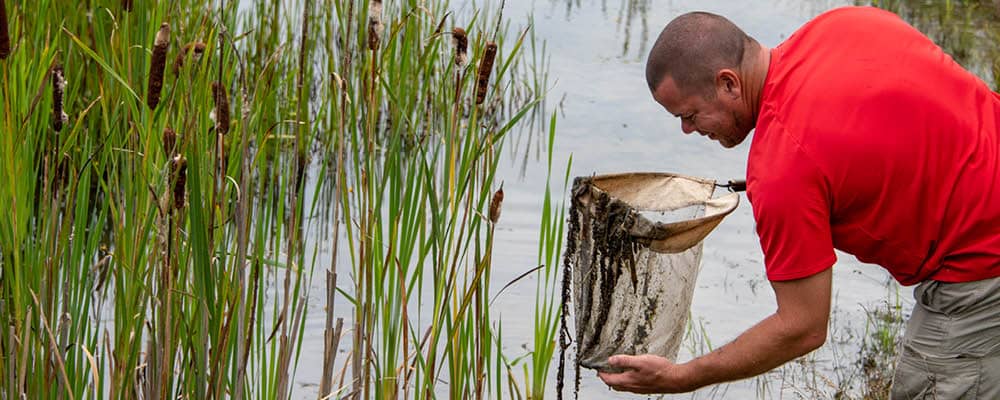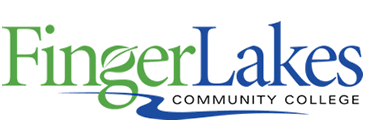Natural Resources Conservation
Certificate

Gain hands-on training at regional field stations while completing introductory courses in biology and wildlife management. Prepare for a career in conservation in as little as one year with this certificate program.
Career Outlook: Environmental Conservation
Careers in natural resources conservation are as abundant and diverse as the environment itself. Finger Lakes Community College is one of the most successful colleges in the state of New York at placing graduates in highly competitive conservation positions. Graduates of our natural resources conservation program hold jobs in the field in more than 25 states and are employed by federal, state, local, and private agencies.
Certificate Program Overview
Earn a natural resources conservation certificate in as little as one year. FLCC's certificate program is designed for you if you plan to seek employment or if you are looking to grow your skills in the environmental conservation fields. This program will also benefit you if you hold a degree in other disciplines that will pair well with conservation training. You also may be interested if you serve, or plan to serve, in an appointed or elected environmental decision-making position.
Outdoor Education and Research Facilities
Study in our research facilities designed for environmental and wildlife education. FLCC's main campus in Canandaigua has an on-site arboretum and greenhouse, as well as multiple wildlife observation blinds. The 250-acre campus is home to second-growth woodlands, wetlands, nature trails, and fields in various states of natural succession. You'll even spend time on the water, joining your classmates and FLCC faculty on our research vessels — including a state-of-the-art electrofishing boat.
You'll receive an exceptional outdoor learning experience at our two field stations in the Finger Lakes, including:
- The Muller Field Station, located on the southern end of Honeoye Lake, where you can participate in lab work, help in the fish hatchery, and engage in community outreach and local research projects.
- The East Hill Campus, located near the High Tor Wildlife Management area in Naples, where you can take part in camping, hiking, wildlife, and nature classes.
Certificate Program Outcomes
Career Pathways
- Conservation Educator
- Field Technician
- Natural Resources Specialist
- Park Ranger
- Trail Steward
- Wildlife Technician
Seamless Transfer Opportunities
If you're interested in continuing your education, your coursework can transfer to our natural resource conservation, environmental science, or fish and wildlife technology degree programs. These programs will broaden your career and transfer prospects in the conservation field.
Low-Cost Tuition and Scholarship Opportunities
Earn a quality education at an affordable rate. With our low cost-per-credit and general scholarship opportunities, you can maximize your potential with minimal debt. 80% of students are awarded scholarships or financial aid that help with the cost of college.
Faculty
Our natural resources conservation faculty have a wide range of environmental expertise. They have earned graduate degrees from institutions such as Lehigh University, SUNY Brockport, and SUNY College of Environmental Science and Forestry. Complementing decades of experience teaching at the college level, our faculty have lived all over the country working in the conservation field.
Adjunct faculty teach specialty classes, with diverse backgrounds that include resource professionals for the U.S. Fish and Wildlife Service and the New York State Department of Environmental Conservation.
Certificate Program

Explore Your Career Options
Map out a path toward your future career, and discover opportunities related to this area of study.
